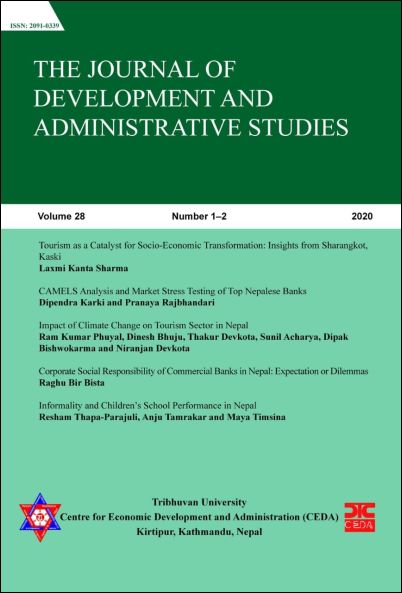Informality and Children’s School Performance in Nepal
DOI:
https://doi.org/10.3126/jodas.v28i1-2.64384Keywords:
Informality, Wage disparity, Child education, ChildrenAbstract
The study confirms that education is the prime determinant of whether an individual worker ends up in informal jobs that are underpaid than their formal counterparts. Educated workers are paid higher wages, mostly among wealthy quintiles with more extended work experience. Most of the females are in informal employment and are getting paid less than males. Parental work significantly relates to children's academic achievement, as the offspring of formally employed parents tend to excel. Parents' level of education shapes children's school performance through motivation, monitoring, and positive behavior. Informality might push individuals into further vulnerable situations via fewer earnings, more workload, and no access to social security. We found that the parents working in informal jobs who are already paid less than their formal counterparts are less confident about the future school performance of their kids. Thus, informality could have been a vicious circle of vulnerability that less-educated parents are underpaid and less optimistic in household human capital formation through child education. It underscores the urgency of policy interventions, including facilitating the transition from informality to formality and reducing the gender wage gap.
Downloads
Downloads
Published
How to Cite
Issue
Section
License
The copyright of the accepted articles is reserved by the Centre for Economic Development and Administration (CEDA), Tribhuvan University (TU). No part of the article published in this journal should be reproduced except provided by the law currently in force without the written consent of the centre.




